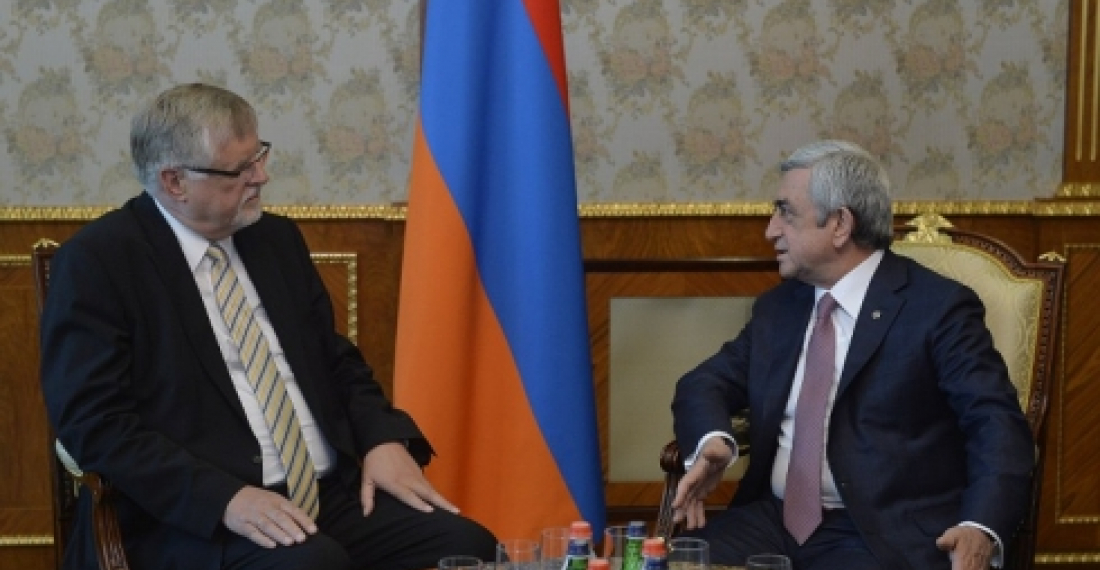The European Union’s special representative in the South Caucasus met with top officials from the Armenian government, as well as officials from the the self-declared Nagorno-Karabakh Republic (NKR), on Tuesday in Yerevan.
Herbet Salber stressed in all his meetings that the Karabakh dispute has no military solution, and that the European Union supports the efforts of the OSCE Minsk Group.
In his meeting with Karen Mirzoyan, NKR foreign minister, the Karabakh delegation said that visits by diplomats and other international delegations, such as those from the EU, are important for developing an objective picture of the situation.
The NKR foreign minister also voiced his support to efforts to stabilize the situation and eventually bring about peace. In his post-meeting statement, Mirzovyan also emphasised accusations that Azerbaijan has committed war crimes and repeatedly violated the ceasefire.
Both sides have repeatedly accused each other of violating a verbal cessation of hostilities agreed on April 5, after the worst fighting for two decades.
Salber also met the Armenian president Serzh Sargsyan as well as foreign minister Edward Nalbandian. Both government officials said they wanted the international community to be more critical of Azerbaijan.
However the two men, as well as Salber, voiced their support for future negotiations, and for an eventual agreement enforced by peaceful means.
SOURCE: commonspace.eu and agencies.
PHOTO: Salber and Sargsyan from armradio.am






